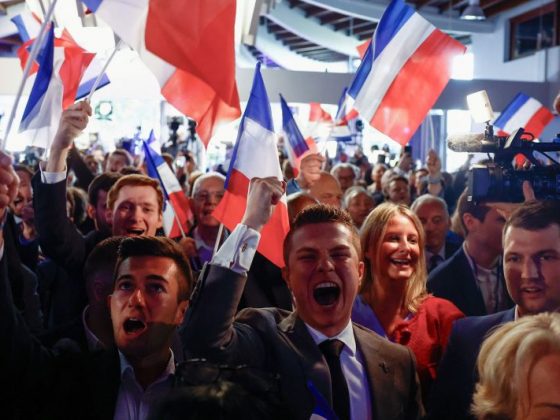 The ‘funflation’ effect refers to the trend where Americans are spending more on travel and entertainment. With more people getting vaccinated and economies around the world reopening, consumers are beginning to spend more in categories such as travel and leisure activities.
There are several reasons behind this effect:
1. Pent-Up Demand: The pandemic has forced most people to stay at home and limit their social activities. Now that restrictions are easing, there is a strong pent-up demand for travel and entertainment, leading to a surge in spending.
2. Spend Shift: During the pandemic, many consumers saved money on commuting, dining out, and other discretionary expenses. With extra funds available and less need for certain budget lines, consumers are reallocating their spending towards experiences like travel and entertainment.
3. Emotional Well-Being: The stress and isolation of the pandemic have heightened people’s need for relaxation and joy. Spending on travel and entertainment can contribute to emotional well-being and are seen as an escape from the stressful times.
4. Remote Work: As remote work has become more prevalent, many workers are not tied to a specific location anymore. This flexibility allows people to travel more, contributing to the rise in spending.
5. Inflation: In general terms, the rising prices of goods and services might also be driving more people to invest in experiences rather than physical items. This is because experiences are less likely to be affected by inflation, or ‘funflation’, as it’s especially relevant when it comes to leisure activities.
Remember,
The ‘funflation’ effect refers to the trend where Americans are spending more on travel and entertainment. With more people getting vaccinated and economies around the world reopening, consumers are beginning to spend more in categories such as travel and leisure activities.
There are several reasons behind this effect:
1. Pent-Up Demand: The pandemic has forced most people to stay at home and limit their social activities. Now that restrictions are easing, there is a strong pent-up demand for travel and entertainment, leading to a surge in spending.
2. Spend Shift: During the pandemic, many consumers saved money on commuting, dining out, and other discretionary expenses. With extra funds available and less need for certain budget lines, consumers are reallocating their spending towards experiences like travel and entertainment.
3. Emotional Well-Being: The stress and isolation of the pandemic have heightened people’s need for relaxation and joy. Spending on travel and entertainment can contribute to emotional well-being and are seen as an escape from the stressful times.
4. Remote Work: As remote work has become more prevalent, many workers are not tied to a specific location anymore. This flexibility allows people to travel more, contributing to the rise in spending.
5. Inflation: In general terms, the rising prices of goods and services might also be driving more people to invest in experiences rather than physical items. This is because experiences are less likely to be affected by inflation, or ‘funflation’, as it’s especially relevant when it comes to leisure activities.
Remember,
The ‘funflation’ effect: Why Americans are spending on travel and entertainment

 The ‘funflation’ effect refers to the trend where Americans are spending more on travel and entertainment. With more people getting vaccinated and economies around the world reopening, consumers are beginning to spend more in categories such as travel and leisure activities.
There are several reasons behind this effect:
1. Pent-Up Demand: The pandemic has forced most people to stay at home and limit their social activities. Now that restrictions are easing, there is a strong pent-up demand for travel and entertainment, leading to a surge in spending.
2. Spend Shift: During the pandemic, many consumers saved money on commuting, dining out, and other discretionary expenses. With extra funds available and less need for certain budget lines, consumers are reallocating their spending towards experiences like travel and entertainment.
3. Emotional Well-Being: The stress and isolation of the pandemic have heightened people’s need for relaxation and joy. Spending on travel and entertainment can contribute to emotional well-being and are seen as an escape from the stressful times.
4. Remote Work: As remote work has become more prevalent, many workers are not tied to a specific location anymore. This flexibility allows people to travel more, contributing to the rise in spending.
5. Inflation: In general terms, the rising prices of goods and services might also be driving more people to invest in experiences rather than physical items. This is because experiences are less likely to be affected by inflation, or ‘funflation’, as it’s especially relevant when it comes to leisure activities.
Remember,
The ‘funflation’ effect refers to the trend where Americans are spending more on travel and entertainment. With more people getting vaccinated and economies around the world reopening, consumers are beginning to spend more in categories such as travel and leisure activities.
There are several reasons behind this effect:
1. Pent-Up Demand: The pandemic has forced most people to stay at home and limit their social activities. Now that restrictions are easing, there is a strong pent-up demand for travel and entertainment, leading to a surge in spending.
2. Spend Shift: During the pandemic, many consumers saved money on commuting, dining out, and other discretionary expenses. With extra funds available and less need for certain budget lines, consumers are reallocating their spending towards experiences like travel and entertainment.
3. Emotional Well-Being: The stress and isolation of the pandemic have heightened people’s need for relaxation and joy. Spending on travel and entertainment can contribute to emotional well-being and are seen as an escape from the stressful times.
4. Remote Work: As remote work has become more prevalent, many workers are not tied to a specific location anymore. This flexibility allows people to travel more, contributing to the rise in spending.
5. Inflation: In general terms, the rising prices of goods and services might also be driving more people to invest in experiences rather than physical items. This is because experiences are less likely to be affected by inflation, or ‘funflation’, as it’s especially relevant when it comes to leisure activities.
Remember,

